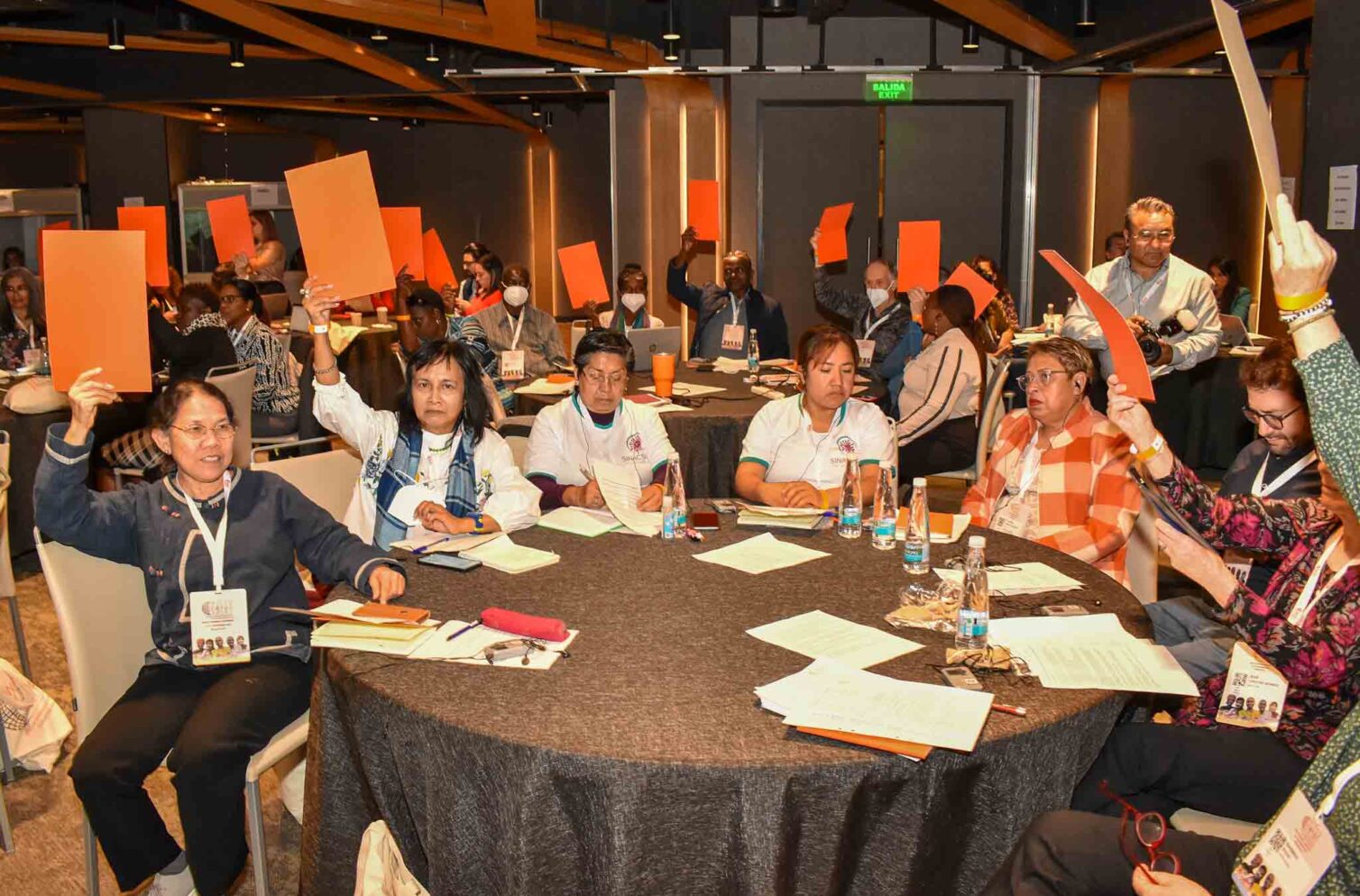Governance & Accountability
WIEGO is uniquely structured to ensure accountability to the workers we serve.
WIEGO is uniquely structured to ensure accountability to the workers we serve.

Institutional Members vote to adopt the strategic plan at WIEGO's 2022 General Assembly.
Our Articles of Association set out the objectives, membership eligibility, and governance structures at WIEGO. WIEGO has a unique membership structure: Organizations of workers in informal employment that are active in WIEGO are invited to become institutional members. Researchers and statisticians – and professionals from development agencies – who have collaborated with WIEGO are invited to join as individual members. These three constituencies participate in our General Assemblies, serve on our Board and are members of Advisory Committees for our Programmes. These consultative structures guide our work and ensure workers are always at the centre of what we do.
The WIEGO Board of Directors draws from our three constituencies and includes individuals from diverse backgrounds and different regions. The Board is composed of four representatives of membership-based organizations of workers in informal employment (one of whom serves as the Chair) plus two representatives each from WIEGO’s other two constituencies: researchers and development practitioners. Other persons are co-opted as needed to carry out the functions of the Board.
Vice-President of the International Domestic Workers Federation
Director of the Social Security Team at the Self-Employed Women’s Association (SEWA)
Co-Founder and Emeritus International Coordinator at WIEGO
US Certified Public Accountant and Board Treasurer
Gender Equality and Projects International Officer at the International Union of Food, Agricultural, Hotel, Restaurant and Catering, Tobacco and Allied Workers' Associations (IUF)
Head of the Cooperative, Social and Solidarity Economy Unit at the International Labour Organization
Independent Consultant
Senior Economist at the Research Department with the International Labour Organization
President of StreetNet International
Director of the Foundation for Labour and Employment Promotion (FLEP) in Thailand
Director of the Southern Centre for Inequality Studies, University of the Witwatersrand, Johannesburg
The General Assembly, a key governance event for the WIEGO Network, is held every four years. Our institutional and individual members come together to review progress, discuss plans and priorities and select representatives to sit on the WIEGO Board and Nominations Committee. General Assemblies also serve to expand and strengthen the WIEGO Network.
The reports also provide an in-depth look into the ways in which WIEGO supports the movement of workers in informal employment.
Learn MoreWe are grateful for their generous financial support, which sustains our work supporting the movement of workers in informal employment, especially women and people living in poverty.
Learn MoreWe commit to uphold the dignity, safety and rights of workers in informal employment. Because we take this commitment seriously, we want to hear from you if you feel that your dignity, safety or rights have been harmed in any way through your interaction with WIEGO.
Learn More